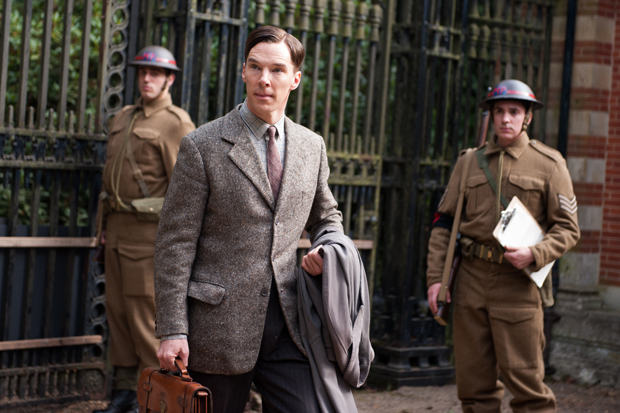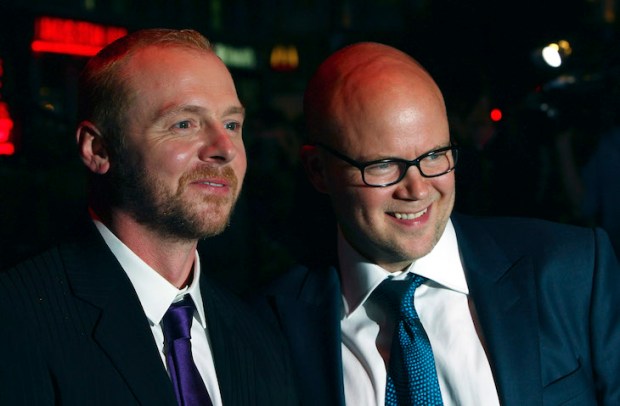When I first heard the story of Alan Turing in my late teens I made what must be quite a common mistake. I concluded that his conviction in 1952 for committing a homosexual act was indefensible in light of his immense contribution to the war effort. The fact that he was forced to undergo a course of hormonal ‘therapy’ which led to his suicide two years later underlined just how badly he was treated. The British authorities should have been erecting statues to him, not hounding him to his death because he was attracted to other men.
The reason this was a mistake is because I’d made a connection between Turing’s war record and the injustice of persecuting him for being homosexual, when it would have been equally wrong if he’d been a conscientious objector. People’s right to have sex with whomever they choose, provided they’ve reached the age of consent, isn’t contingent on their having done something heroic. By the same token, it’s not a valid argument to say that criminalising homosexual acts is wrong because some homosexuals contribute an enormous amount to our national life. Let’s call all variations of this mistake the Turing Fallacy.
The Imitation Game — the film about Turing starring Benedict Cumberbatch — commits this fallacy, but not in the way you’d expect. It doesn’t romanticise Turing. On the contrary, he’s portrayed as an unfeeling intellectual snob, a person with no friends, no sense of humour — a man who struggles to make any human connection at all. All those who knew Turing have said they don’t recognise this picture and these distortions suggest that the people who’ve made the film aren’t interested in promoting Turing as a gay martyr — a sort of Oscar Wilde figure. Indeed, the filmmakers have invented a subplot in which Turing discovers the identity of a Soviet agent working at Bletchley Park but is blackmailed into keeping quiet. That is, they’ve falsely portrayed him as a traitor and explicitly linked it to his homosexuality. I suppose there might be an argument for gay rights in there somewhere — if homosexual acts weren’t illegal, gays would be less susceptible to blackmail — but it’s pretty well hidden.
No, the filmmakers are guilty of committing the Turing Fallacy in another way. The Imitation Game isn’t a plea for greater tolerance of homosexuals, but of people on the autistic spectrum. Its cause is neurodiversity, not sexual diversity. That’s why Turing is portrayed as someone who struggles with ordinary human interaction. He’s literal-minded to a fault and is incapable of understanding jokes. He’s nothing like the real Alan Turing, who was warm, charming and funny; instead, he’s exactly like the main character in The Curious Incident of the Dog in the Night-Time. To make a point, the filmmakers have invented a largely fictional character — a mathematical genius with Asperger’s syndrome. It’s as if they decided that presenting Turing as a victim of the persecution of homosexuals is old hat. So instead, he’s portrayed as a martyr to another, more fashionable cause. His crime isn’t being gay, but failing to be neurotypical.
Now, I’m all for giving more respect to people on the autistic spectrum — my half-brother Christopher is on the autistic spectrum — but not because they’re ‘special’. The Imitation Game commits a similar error to Rain Man, which seems to argue that Dustin Hoffman’s character should be valued and cherished not because he’s a human being with the same needs as the rest of us but because he’s exceptional with numbers. It’s patronising nonsense, and as an argument for neuro-diversity doesn’t bear scrutiny. It won’t surprise you to learn that Christopher isn’t any good at maths.
If the makers of The Imitation Game had done any research into autism, they’d know that ‘auties’ and ‘aspies’ are no more likely to be mathematical geniuses than the neurotypical. It’s romantic gobbledegook — the Turing Fallacy par excellence. The filmmakers are peddling this myth in order to burnish their liberal credentials, not because they actually want to improve life for people on the spectrum. My brother lives in a residential community that depends on taxpayer subsidy and that will be put at risk if people think he could just as easily be earning a living breaking codes as he could weaving baskets. Far from helping him or any of his fellow sufferers, The Imitation Game is just Hollywood hokum. I’ve no doubt it will win a hatful of Oscars.
Got something to add? Join the discussion and comment below.
Get 10 issues for just $10
Subscribe to The Spectator Australia today for the next 10 magazine issues, plus full online access, for just $10.
Toby Young is associate editor of The Spectator.
You might disagree with half of it, but you’ll enjoy reading all of it. Try your first month for free, then just $2 a week for the remainder of your first year.















Comments
Don't miss out
Join the conversation with other Spectator Australia readers. Subscribe to leave a comment.
SUBSCRIBEAlready a subscriber? Log in